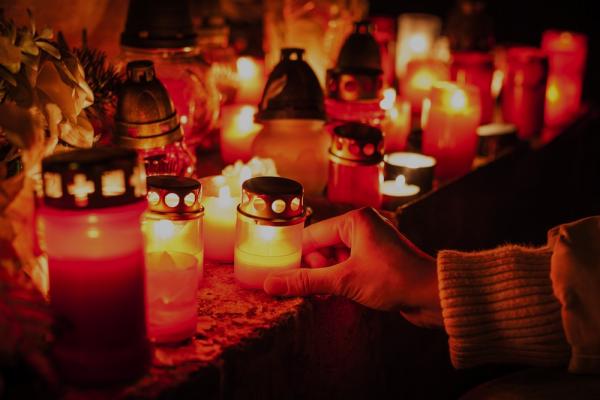Of all the social indignities a child can suffer, not celebrating Halloween is surely near the top. In addition to the already-baleful list of oddities trailing my grade school self (fresh out of homeschool; in desperate need of braces; asking for more homework because I “liked it”), my panicked silence to the yearly question, “What are you dressing up as for Halloween?” — and my subsequent recusal from class before the festooned Halloween parade and glittering candy bonanza sugar rollercoaster that followed — burned my ears with everlasting shame.
But once safely away from judging peers, I actually never minded too much. I’d help give out candy at our door (“just getting some water from the kitchen” when kids my age came down the street), and tuck away a few treats for myself. The next morning, I’d come downstairs in the post-Halloween dawn to a row of neatly-folded gold origami baskets, filled with candy and homemade chocolates and a little note from my mom — a verse about light, or resurrection, or great clouds of witnesses.
For years, All Saints' Day was to me a kept secret, a holiday I learned to love and never share. I had to try desperately to get away with casually not-celebrating Halloween. I definitely couldn’t tell anyone in my nondenominational evangelical conservative town that I celebrated saints.
But I did. I wore saint costumes, and sang songs about the “faithful and brave and true.” I proudly paraded down the aisle of my church with my St. Catherine of Siena cape lovingly arranged just so, proud of my brother’s St. Martin of Tours impression (though I was too dignified to tell him. Saints don’t compliment each other’s outfits).
And the truth that my parents taught — and my young self intuited, beneath the social anxiety and denominational ritual — was this: Christians have an additional story to tell. And while I have never found Halloween and All Saints' Day to be mutually exclusive, for Christians, the former without the latter is anemic.
Halloween, great fun as it is, is simply a prelude to the symphony.
Read the Full Article

